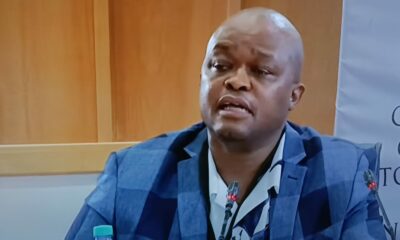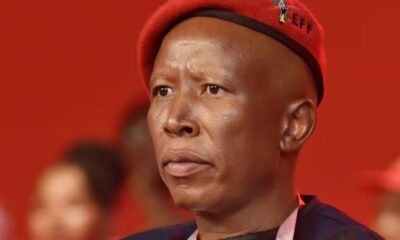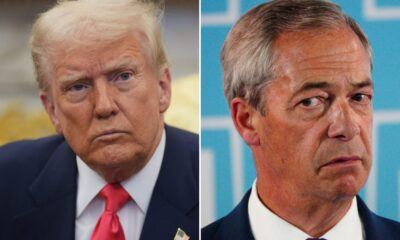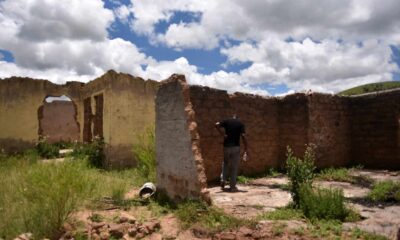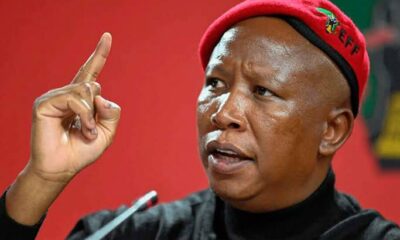News
Malema Slams Operation Dudula: Why the Movement Has South Africa Divided
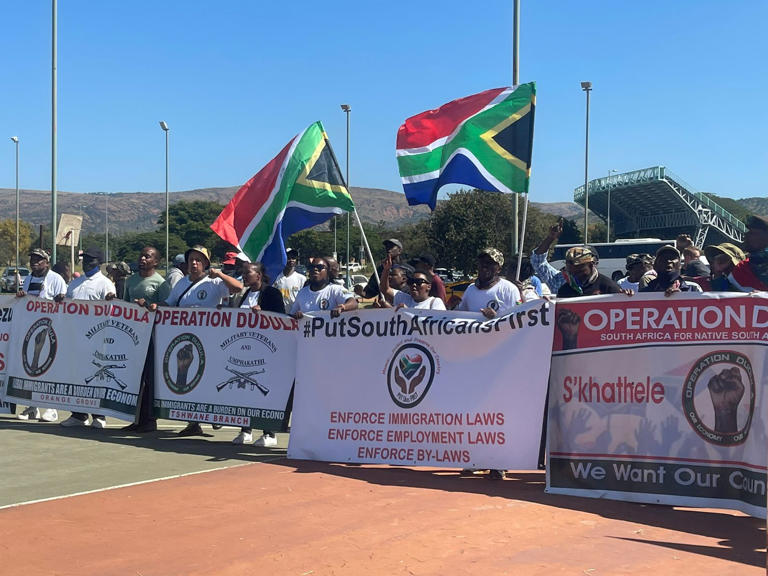
When Julius Malema speaks, South Africa listens, sometimes with applause, sometimes with outrage. His latest target is Operation Dudula, the anti-migrant movement that has been making headlines for its confrontational tactics. In a fiery post on X this week, the EFF leader didn’t mince his words: “Operation Dudula is a group of thugs and must be subjected to the Political Killings Task Team. Period!”
This bold statement has ignited a fresh wave of debate around immigration, activism, and the limits of community policing in South Africa.
The roots of Dudula’s rise
Operation Dudula began as a grassroots campaign, positioning itself as a community-driven response to illegal immigration, drug trafficking, and unemployment. Members have marched into clinics, inspected businesses, and even blocked access to hospitals, demanding proof of citizenship from patients.
Supporters say they are ordinary South Africans standing up for their communities, filling a void left by weak enforcement of immigration laws. Critics, however, argue that Dudula’s actions cross the line into xenophobia and vigilantism, eroding the rule of law and undermining human rights.
The South African Human Rights Commission (SAHRC) has already condemned the movement’s hospital blockades, calling them unconstitutional and a direct threat to public safety. Even Gauteng Health MEC Nomantu Nkomo-Ralehoko spoke out against the harassment of patients earlier this year.
Malema’s counter-narrative
Malema’s attack on Dudula comes fresh off a diplomatic trip to Nigeria, where he once again championed pan-African unity and open borders. For years, he has argued that Africa should see itself as a single community rather than a collection of rival nations.
His stance has earned him both loyal supporters, who admire his vision of continental solidarity, and fierce critics, who accuse him of ignoring South Africa’s deep economic pain. With unemployment hovering at record highs and public services under strain, immigration remains one of the most explosive topics in the country.
For Malema, however, Dudula represents something more dangerous: the normalisation of mob justice. By calling on the Political Killings Task Team, a unit set up to investigate politically motivated murders, he is signalling that Dudula should be treated not as a civic group but as a criminal threat.
Public opinion: divided and emotional
On social media, the reaction has been split. Some South Africans cheered Malema for standing against what they see as mob-style intimidation, while others accused him of being out of touch with everyday struggles.
One X user wrote: “EFF is right, we can’t have people blocking hospitals. That’s not activism, that’s cruelty.” Another countered: “Easy for Malema to talk about open borders when he’s not fighting for jobs in our communities.”
The divide reflects a broader national tension. Many communities genuinely feel abandoned by the state, turning to movements like Dudula to take matters into their own hands. Yet, without proper checks, these campaigns risk morphing into lawlessness under the banner of activism.
Beyond Dudula: a bigger test for South Africa
The Dudula saga highlights a much deeper issue: South Africa’s failure to manage migration effectively. With porous borders, overwhelmed immigration systems, and a struggling economy, the country has become fertile ground for resentment and scapegoating.
Unless government leaders confront these systemic problems with meaningful reforms and honest public dialogue, the risk of polarisation and violence will only grow.
For now, Malema has thrown down the gauntlet. Whether the police or government take him up on his demand to investigate Operation Dudula remains to be seen. What’s clear is that immigration has become a frontline battle in South Africa’s political wars and one that shows no signs of cooling down.
{Source: IOL}
Follow Joburg ETC on Facebook, Twitter , TikTok and Instagram
For more News in Johannesburg, visit joburgetc.com

